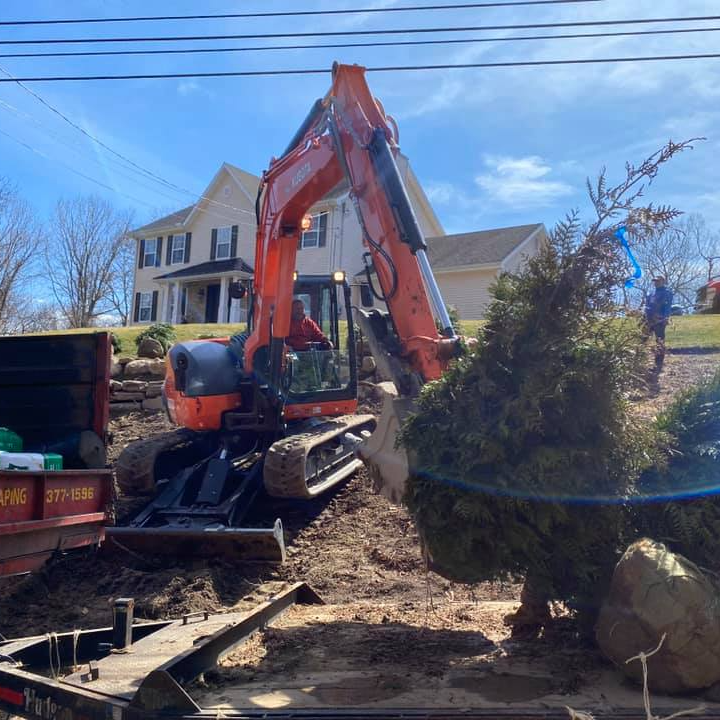Budget-friendly Lancaster Excavation - High Quality Excavation at Competitive Costs
Budget-friendly Lancaster Excavation - High Quality Excavation at Competitive Costs
Blog Article
Comprehensive Excavation Methods: Understanding the Basics for Success
In the world of construction and civil engineering, the significance of efficient excavation techniques can not be overemphasized. The mindful planning, accurate implementation, and precise interest to information called for in excavation projects demand an extensive approach that encompasses numerous fundamental elements. From preliminary dirt analysis to the execution of precaution and normal progression monitoring, understanding these core components is necessary for attaining success in any kind of excavation venture. The real proficiency lies not simply in comprehending these basics but in perfectly integrating them to navigate the complexities of excavation projects with skill.
Comprehending Excavation Task Planning

The initial phase of any type of excavation task is the planning phase, where critical decisions are made that can substantially impact the result of the task. Understanding the project range, timeline, and spending plan constraints is critical for creating a detailed excavation strategy that makes certain the task's success.
One trick facet of excavation job preparation is the development of an in-depth timeline that describes the sequence of target dates, milestones, and activities. This timeline acts as a roadmap for the task team, allowing them to track development and make necessary adjustments to guarantee the task stays on schedule. Additionally, a distinct budget plan that makes up all expenditures, including tools leasing, labor costs, and products, is important for avoiding price overruns and hold-ups. By thoroughly considering all these variables throughout the planning stage, excavation projects can be implemented successfully and successfully, resulting in successful outcomes.
Soil Analysis and Website Analysis
Conducting detailed soil analysis and website analysis is an important action in the preparation stage of any excavation job. Dirt analysis entails identifying the structure, framework, and buildings of the soil at the excavation website. This information is important for comprehending the dirt's bearing ability, moisture content, and capacity for disintegration, which are vital aspects in identifying the excavation approaches and devices required for the job.
Website assessment exceeds soil analysis and includes a more comprehensive assessment of the overall site problems. This analysis consists of identifying any potential hazards, such as underground utilities, ecological worries, or unpredictable surface, that might affect the excavation procedure. By completely examining the site, project managers can develop effective excavation strategies that prioritize safety and security, performance, and ecological defense.
Using sophisticated modern technologies like ground-penetrating radar, dirt tasting, and drone surveys can enhance the precision and efficiency of soil analysis and website evaluation. Spending time and sources in these initial steps can eventually save time and avoid costly delays or complications throughout the excavation process.
Tools Selection and Usage
Efficient excavation tasks depend heavily on site web tactical tools choice and usage to make certain optimal performance and productivity. Picking the best equipment for the job is important in making best use of performance and reducing downtime. Variables such as the kind of dirt, depth of excavation, and job extent play a considerable function in figuring out the most appropriate tools for the task handy.

Along with selecting the suitable tools, proper usage is essential to job success. Operators should be educated to handle the equipment safely and efficiently - dump truck companies in ohio. Routine upkeep checks and prompt fixings aid protect against break downs and ensure regular efficiency throughout the task
Precaution and Rules Conformity
In the realm of excavation projects, prioritizing safety and security actions and conformity with laws is vital to making sure a legally audio and safe and secure functional setting. Precaution include a range of practices, consisting of conducting thorough site assessments, executing proper signs and barriers, and supplying adequate safety and security training for all workers associated with the excavation procedure. Adherence to policies, such as continue reading this OSHA demands in check that the United States, ensures that the excavation task meets the essential requirements to safeguard employees, bystanders, and the surrounding setting.

Tracking Development and Adjusting Strategies
How can predict managers successfully track the advancement of excavation tasks and adapt their methods as necessary to enhance outcomes? Surveillance progression is vital for making certain that excavation jobs remain on track and fulfill deadlines.

Verdict
In final thought, mastering the principles of comprehensive excavation methods is vital for the success of any task. By comprehending project planning, assessing soil and website problems, selecting proper devices, abiding by safety laws, and keeping an eye on progress, task managers can ensure a efficient and smooth excavation procedure. Applying these strategies will certainly result in effective end results and reduce possible risks or troubles during the excavation job.
The first phase of any kind of excavation project is the planning phase, where crucial choices are made that can significantly affect the result of the task. Understanding the job spending plan, scope, and timeline restraints is essential for producing a thorough excavation plan that guarantees the job's success.
Exactly how can predict managers successfully track the innovation of excavation projects and adapt their techniques appropriately to maximize outcomes? By closely checking progress and being prepared to adjust methods, task supervisors can boost the total success of excavation tasks.
By understanding project planning, evaluating soil and site conditions, selecting suitable devices, conforming with safety and security laws, and checking progression, task supervisors can make certain a reliable and smooth excavation procedure.
Report this page